Optolong L-Extreme Dual-Band Astronomy NarrowBand Filter
The advantage of the L-eXtreme filter is that there is no transmission between the H-beta and OIII lines and there are also no nebula emission lines there. In this case, it isn’t letting light pollution come through so it maximizes nebula signals and the sky background is made darker while imaging.
The L-eXtreme filter should better isolate the emission lines and better protect from light pollution.
L-Extreme Introduction
Optolong L-eXtreme is a two 7 nm bandpass filter which can be used with one-shot color cameras like DSLR’s (digital SLR), and monochrome CCD cameras, it is also more suited for fast systems. The convenience and cost-effectiveness of this filter allows amateurs to image a rich emission nebula, even in bright, light pollution skies. Optolong believes the design of L-eXtreme filter would be a better choice for fast systems at a competitive price. It isolates the H-alpha, and Oxygen-iii nebula emission lines so that the contrast and signal-to-noise ratio between nebulae were maximized. For people who are living in very light-polluted areas, or when the moon is out, the L-eXtreme will be a good filter.
Unlike the L-eNhance filter which is a tri-band (transmits H-b, H-a, and O-iii), the L-eXtreme filter is dual-band that passes H-a and O-iii emission lines.
Hydrogen is the largest, the most primitive, the simplest, and the oldest element in the universe. Scientists consider that Hydrogen amounts to more than 90% of visible substance in space. Our sun is 5 billion years old, but so far hydrogen is still the key matter of nuclear fusion. While the sulfur element does not have much scientific significance, so keeping H and O for the exploration of life.
Therefore, Optolong highlights H-a, H-b, O-iii, and O-ii, and reduce the signal of sulfur.
L-eXtreme Performance:
I. Compare: L-eXtreme VS no filter © Vincent Cheng 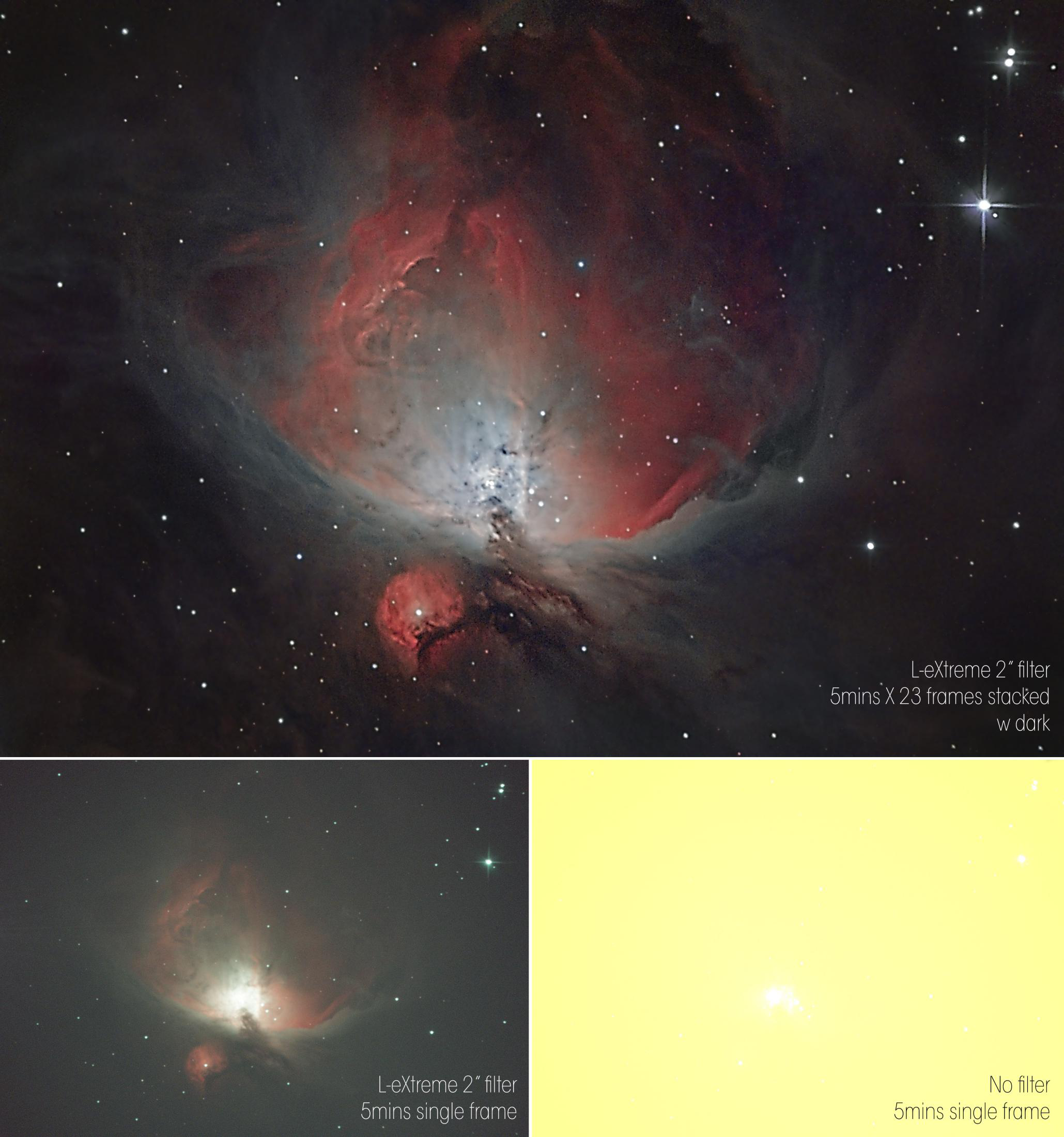
II. NGC6946, Barnard 150 & Sh2-129 Flying Bat nebula ©José Jiménez NGC6946, Barnard 150 & Sh2-129 Flying Bat nebula Canon 6D mod & WO SpaceCat 51 RGB 25 x 600" ISO 3200 - Optolong L-Pro H-Alpha & OIII 20 x 1500" ISO 3200 - Optolong L-eXtreme
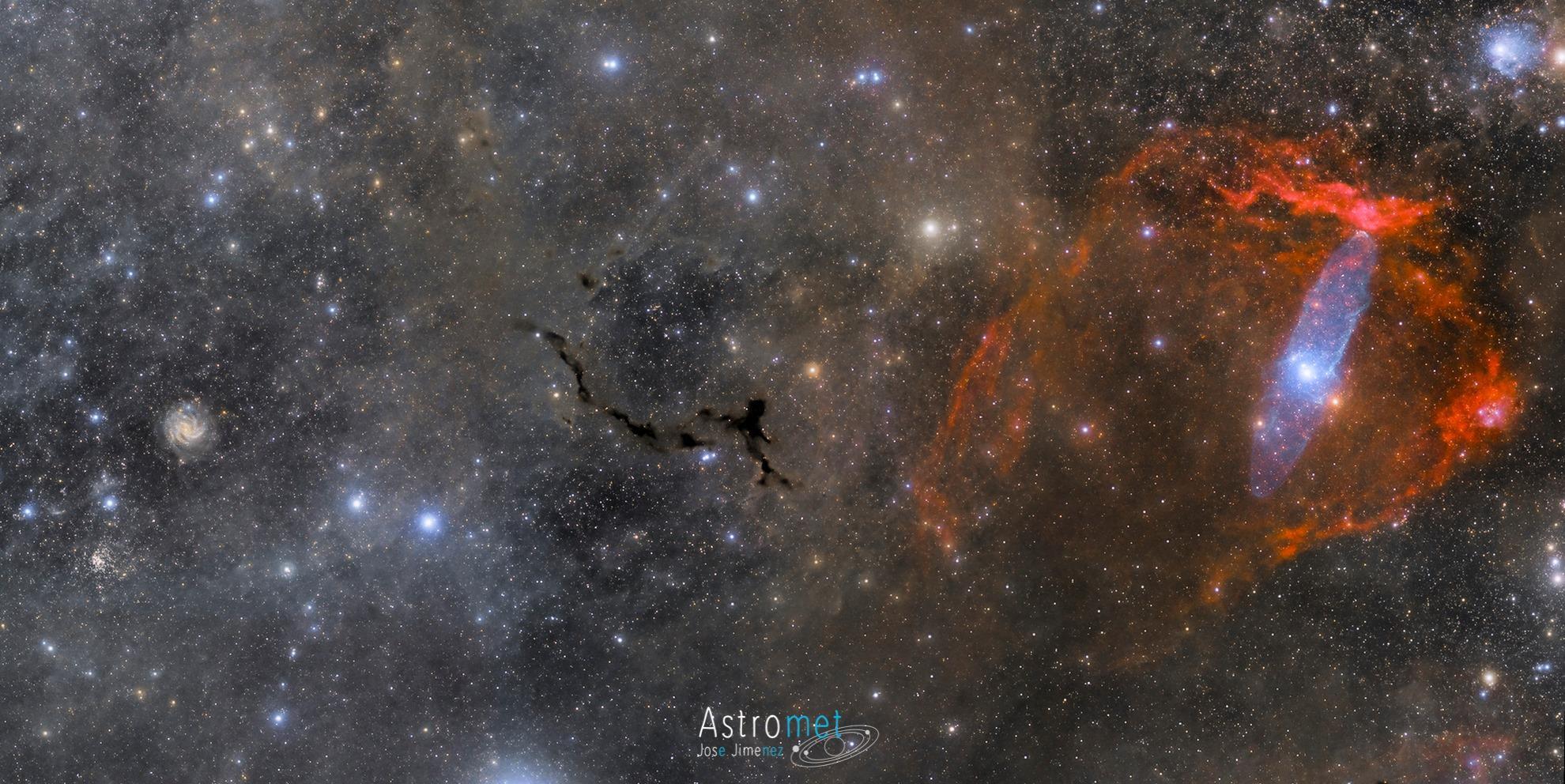
III. The Rosette and Cone Nebulas ©Starizona The image of the Rosette and Cone Nebulas is an example under about the worst conditions: a very wide field of view (135mm lens, 8 x 5.5 degrees), a very fast focal ratio (f/1.8) and with the 58% illuminated moon only 17 degrees outside the field of view! It is 20 exposures of 90 seconds each with the ZWO ASI294.
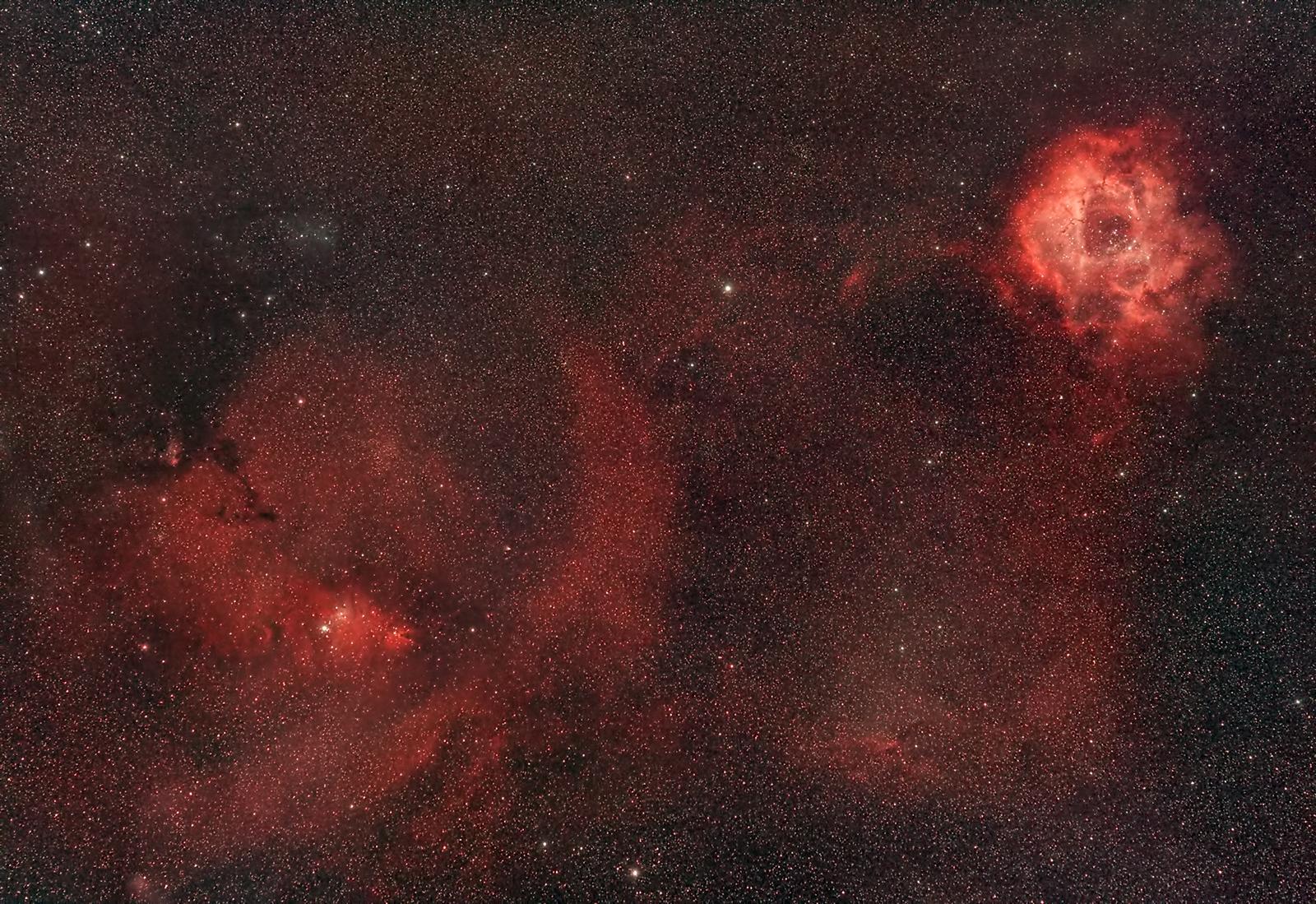
IV. IC1396 Elephant Trunk nebula ©José Jiménez A new job with Optolong L-eXtreme filter and the new Askar Lens FRA 400 tube; IC1396 Elephant Trunk nebula La Jonquera - Girona - Spain May 2020 Equipment used : Canon 6D mod Askar FRA 400mm Sharpstar Optics Fong Michael RGB 6 x 1500" ISO 6400 Optolong L-eXtreme Sky Watcher EQ6 Mount Guide camera QHY5 Flats, Darks & Bias Calibrated, stacked and processed with Pixinsight, final tweaks with Lightroom
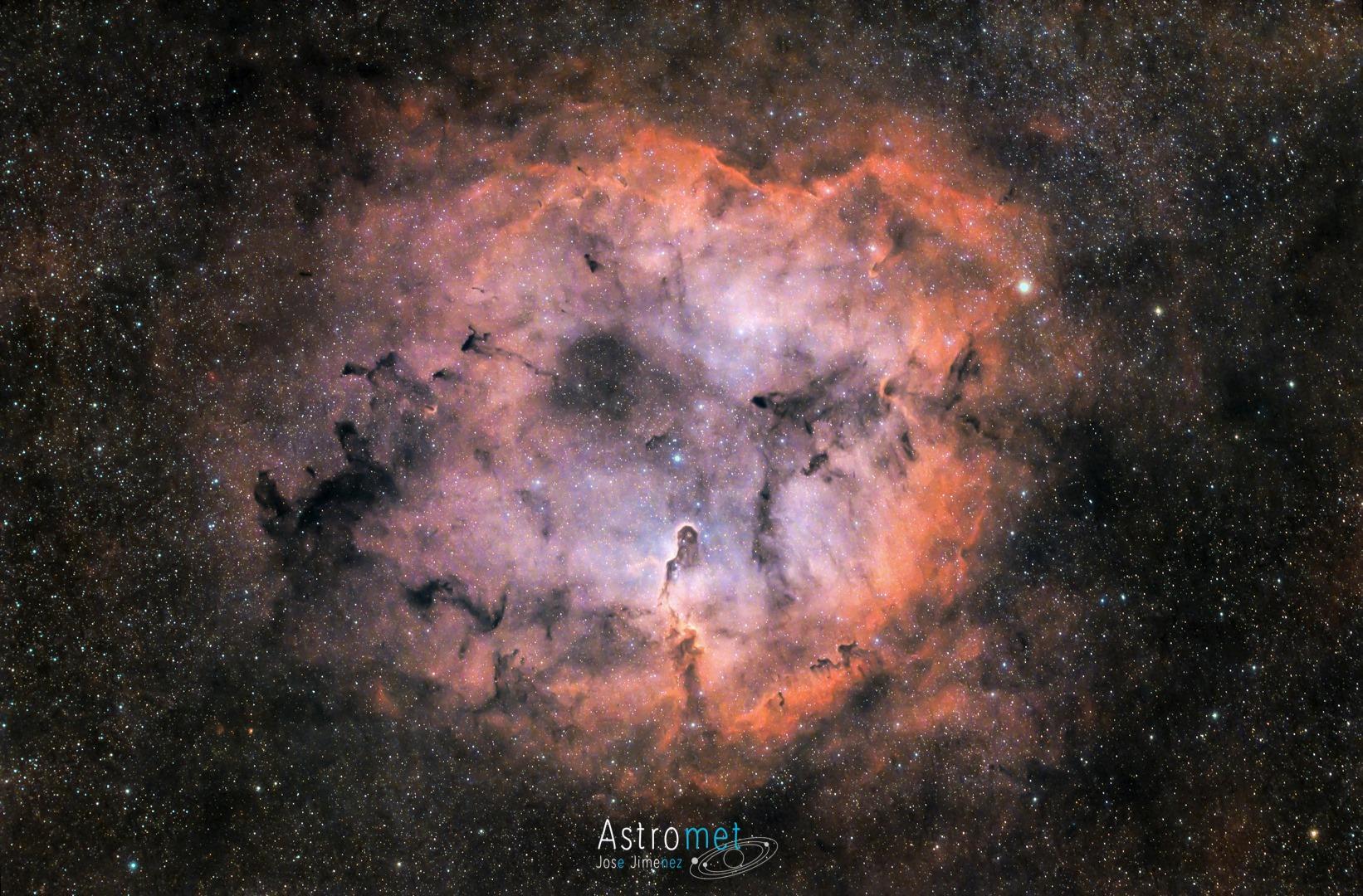
V. NGC6188 Fighting Dragons of Ara ©Tommy Lim KW OBJECTS: NGC6188 FIGHTING DRAGONS OF ARA LOCATION: MERSING, JOHOR CAMERA: QHY168C TELESCOPE: 4" REFRACTOR MOUNT: SKYWATCHER AZ-EQ5GT FILTERS: OPTOLONG L-EXTREME FILTER. EXPOSURE: 30 X 300SEC Stacked in Siril and processed in Pixinsight.
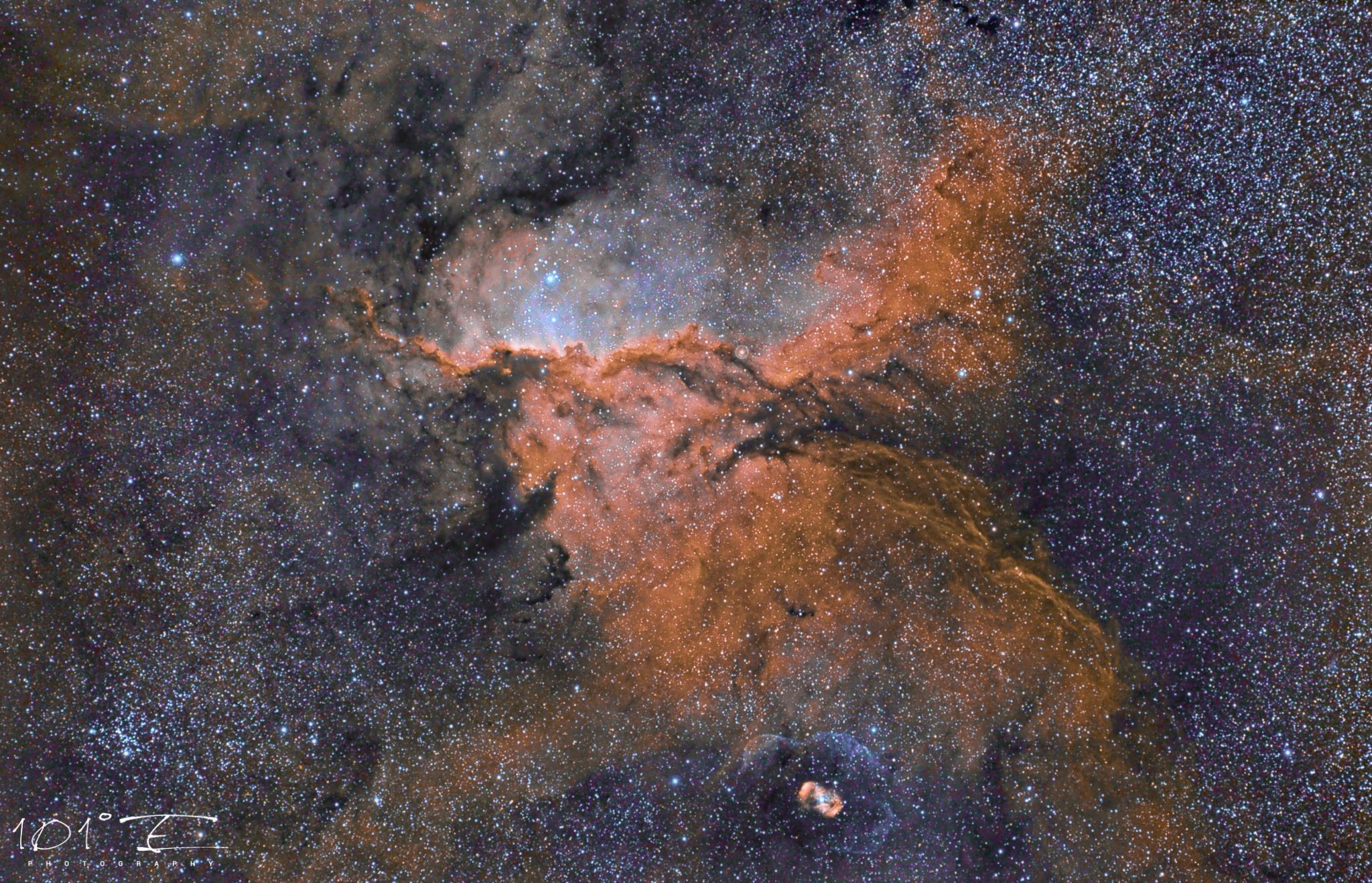 Warm prompt
Warm prompt
- About color: due to the influence of ambient light, color difference of the display and flash photography, the color of the product may have some color difference. Detailed color is in accordana with the final product.
- About coating: the interference filter will show different colors under different light, which is a normal phenomenon. Please refer to the material object.
- About the style: in order to improve the product, the change of design/appearance/parameters has not been updated in time. Please see the subject produce.
- About the description: the series of this product have the same material, technology and design, different sizes only, please note.
Technical Specifications
Spectrum and Characteristic:
Sbustrate: B270
Thickness: 1.85mm
Tpeak: T>90%
Blocking range: 300-1000nm
Blocking depth: light pollution line blocking >99%
Surface quality: 60/40
Transmitted Wavefront RMS: λ/4
Parallelism: 30s

How to read the chart?
▲The horizontal axis is the Wavelength in Nanometers(nm).
▲The vertical axis is transmission in %.
▲The RED line shows the line of H-alpha. GREEN line shows the emmission of OIII. The artifical emission lines are shown in ORANGE.
Coating Technology
- Multi-layers anti-reflection coating
- Non-cementing optical substrate coating
- Optolong filter adopts precision coating based on Ion-assisted deposition coating technology for durability and resistance to scratching, as well as stability on CWL (central wavelength) no deviation affected by temperature change.
- Planetary rotation system offers precision and homogeneity of coatings ensuring high value on transmission of pass-band and Optical density of off-band.
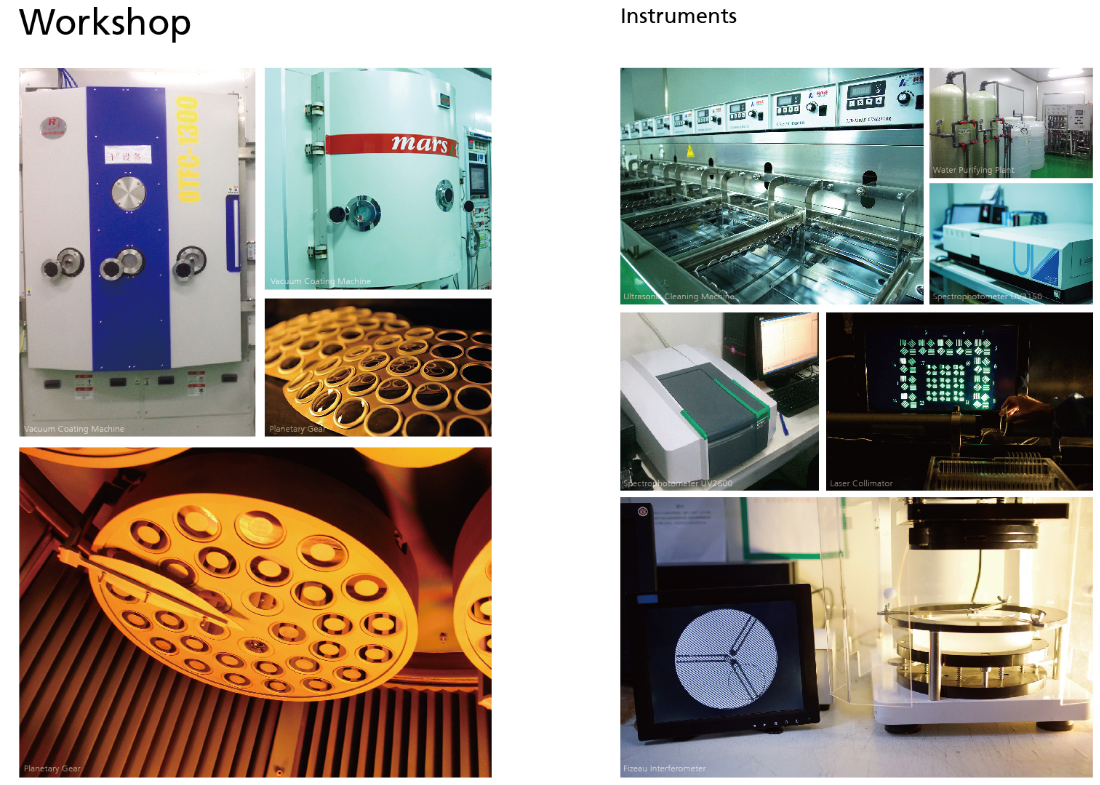
Packing
- Outer Box: silve box
- Plastic Box: PP material
- Lining: imported high pressure white EVA material










 Warm prompt
Warm prompt

